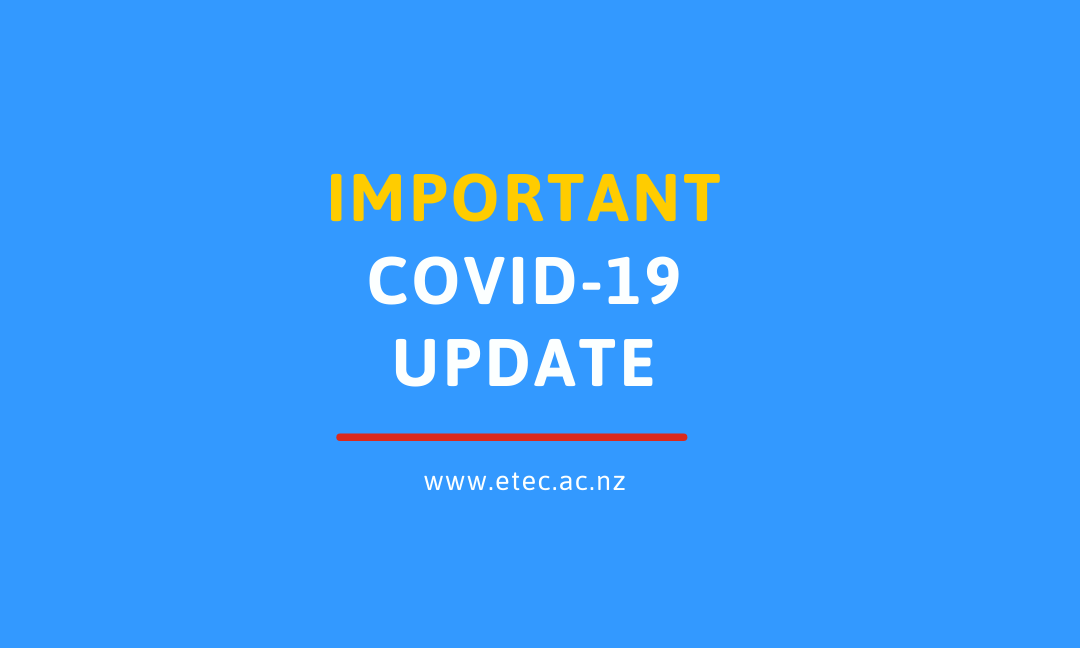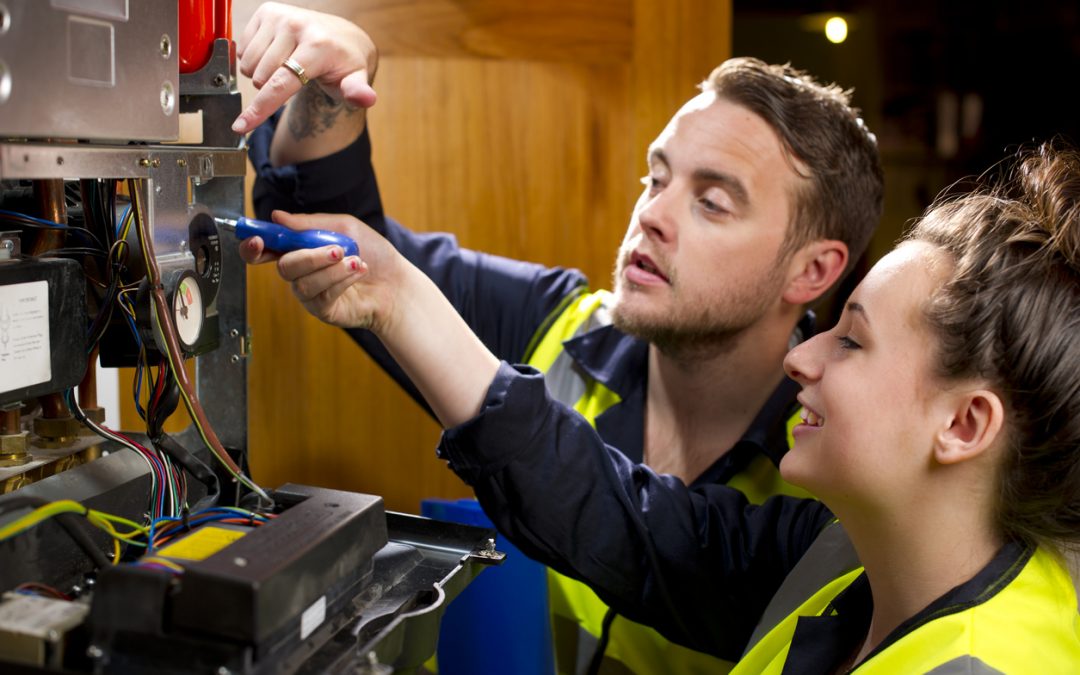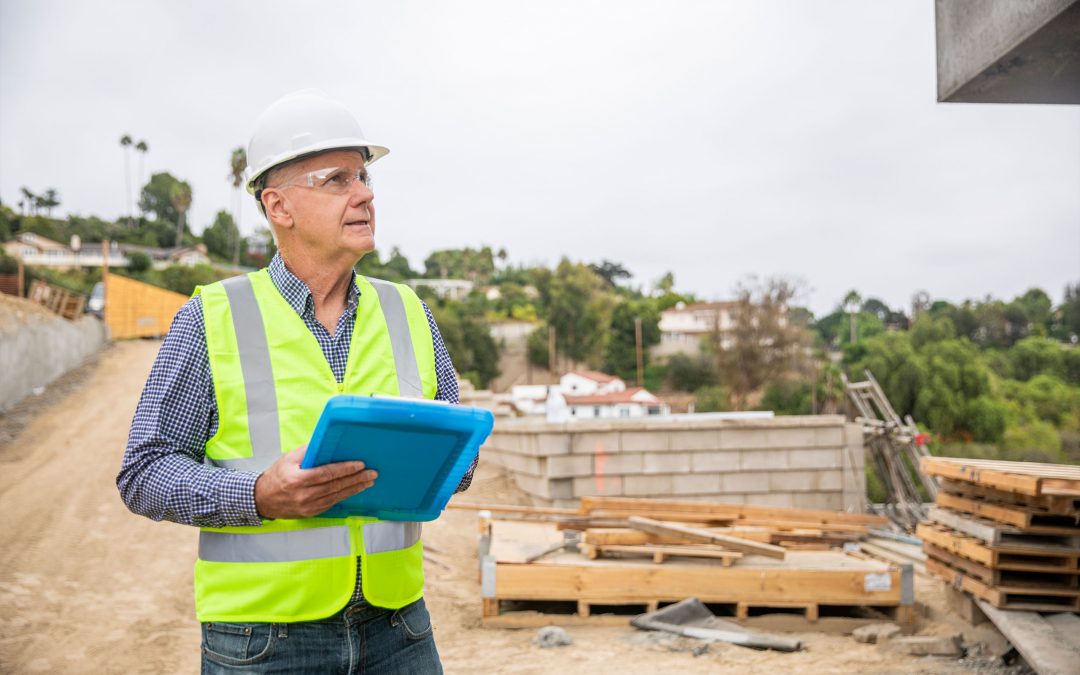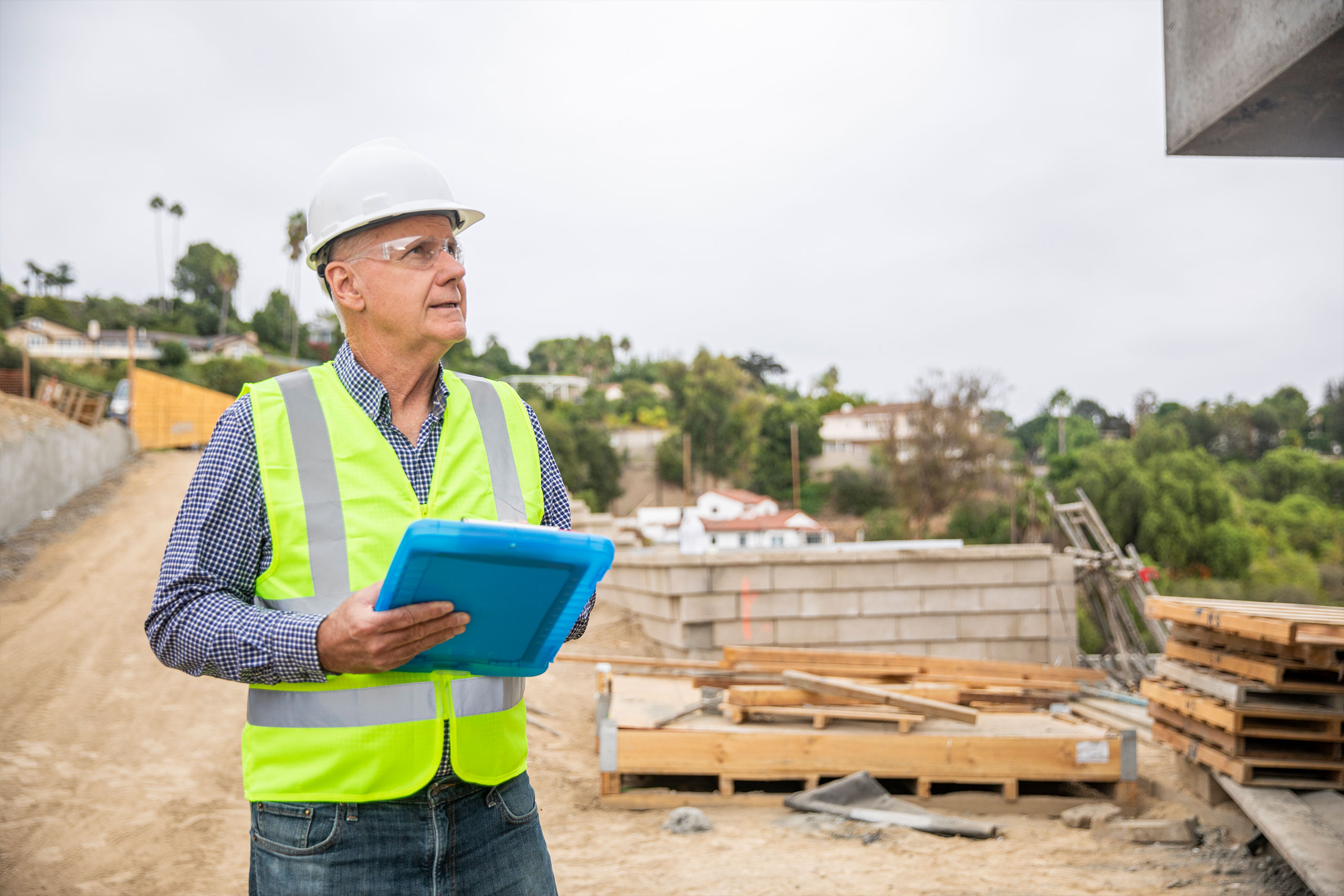
E-tec at Alert Level 2
All in-person training will be running under Alert Level 2
The health and safety of our trainees and our staff is our number one priority. With the move to Alert Level 2 we’ll be enforcing strict health and safety protocols that ensure the safety of everyone on our premises.
Arriving on site
- If you are coming to a pre-arranged class, you’ll need to park at the rear of the building and enter via the rear door.
- Please maintain the 2m physical distancing as you enter the building.
- There will be signage directing you to the appropriate area, where you’ll be required to clean your hands with hand sanitiser before signing a Contact Tracing Register.
- This Register asks you to declare that:
- you have not been in contact with anyone with Covid-19 symptoms
- you have no Covid-19 symptoms yourself.
- The Register will also require your personal contact details, so that the Government can trace you in the event of an outbreak.
- Your tutor will meet you in the designated area and take you through a site induction and explain the safe distancing and hygiene protocols.
- You must maintain a 1m safe distance from your classmates at all times.
- Working surfaces and test equipment will be thoroughly cleaned at the start and end of each day. All tools brought to site must be cleaned using the antiseptic wipes provided before the class commences and should be left on site until the end of your course – at that point, they will need to be thoroughly cleaned before they can be removed.
- You are welcome to bring your own food and use the spacious E-tec cafeteria for your meals and breaks, provided you follow social distancing and hygiene standards. There will be processes in place to ensure breaks are staggered and that the number of people in the cafeteria is kept within a safe limit.
- Please be aware that other classes and businesses may also be operating in the same building at the same time – so you must maintain a safe 1m distance from everyone outside your class as well during the time you are on E-tec premises.
Additional information
- Our COVID-19 Safety Plan has been developed in accordance with WorkSafe guidelines. You can view it here.
- If you’d like to speak to someone about your course or training needs, you can contact E-tec by emailing [email protected] or calling 0800 030 500.
We really appreciate your cooperation in helping us to maintain these health and safety protocols – but it is also important to point out that we will need to ask anyone not well, or not adhering to the rules, to leave the site immediately.
If you become concerned about anyone breaching the rules, or believe a fellow classmate may be unwell, talk to your tutor immediately or contact the manager at E-tec on (027) 777 4405.



